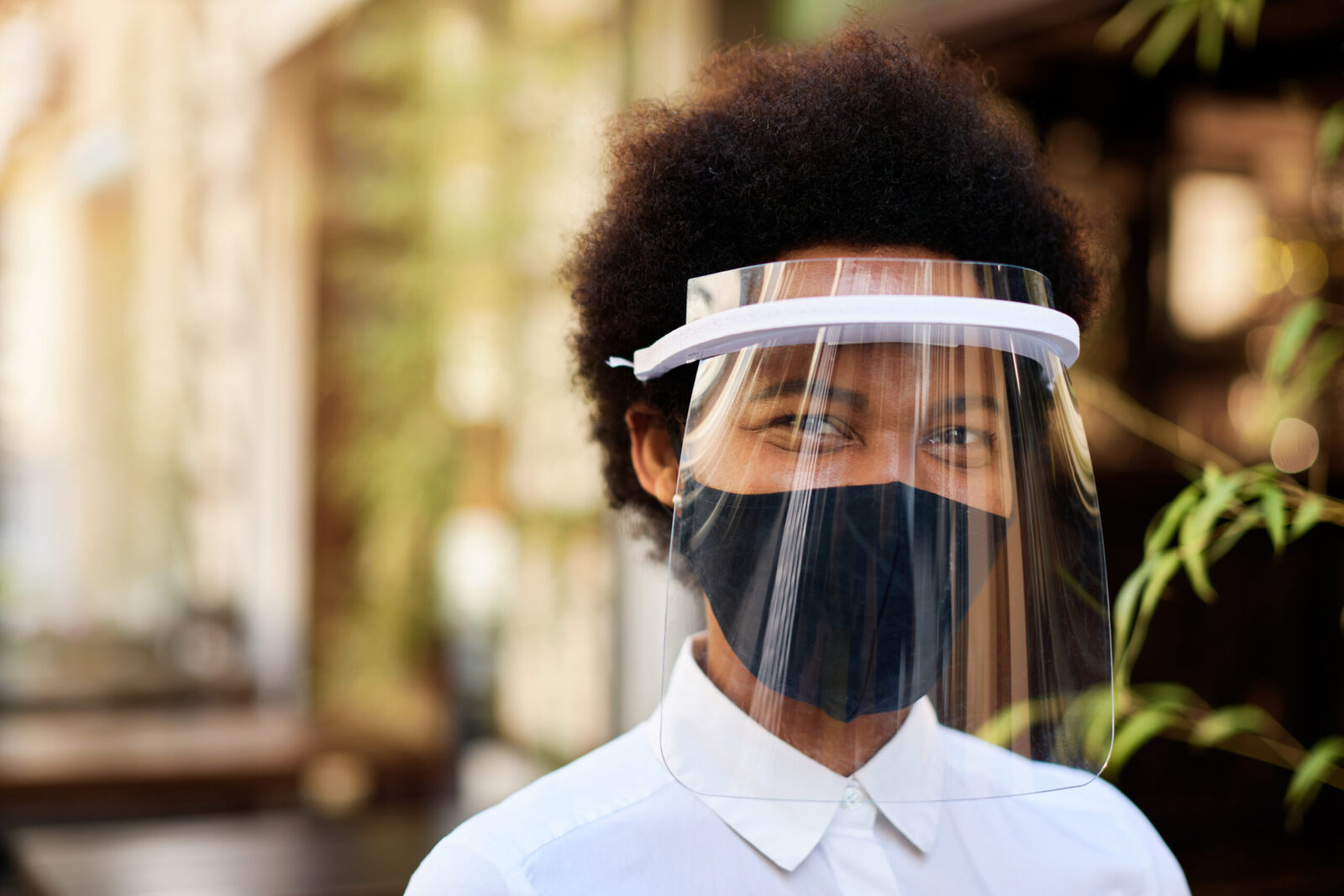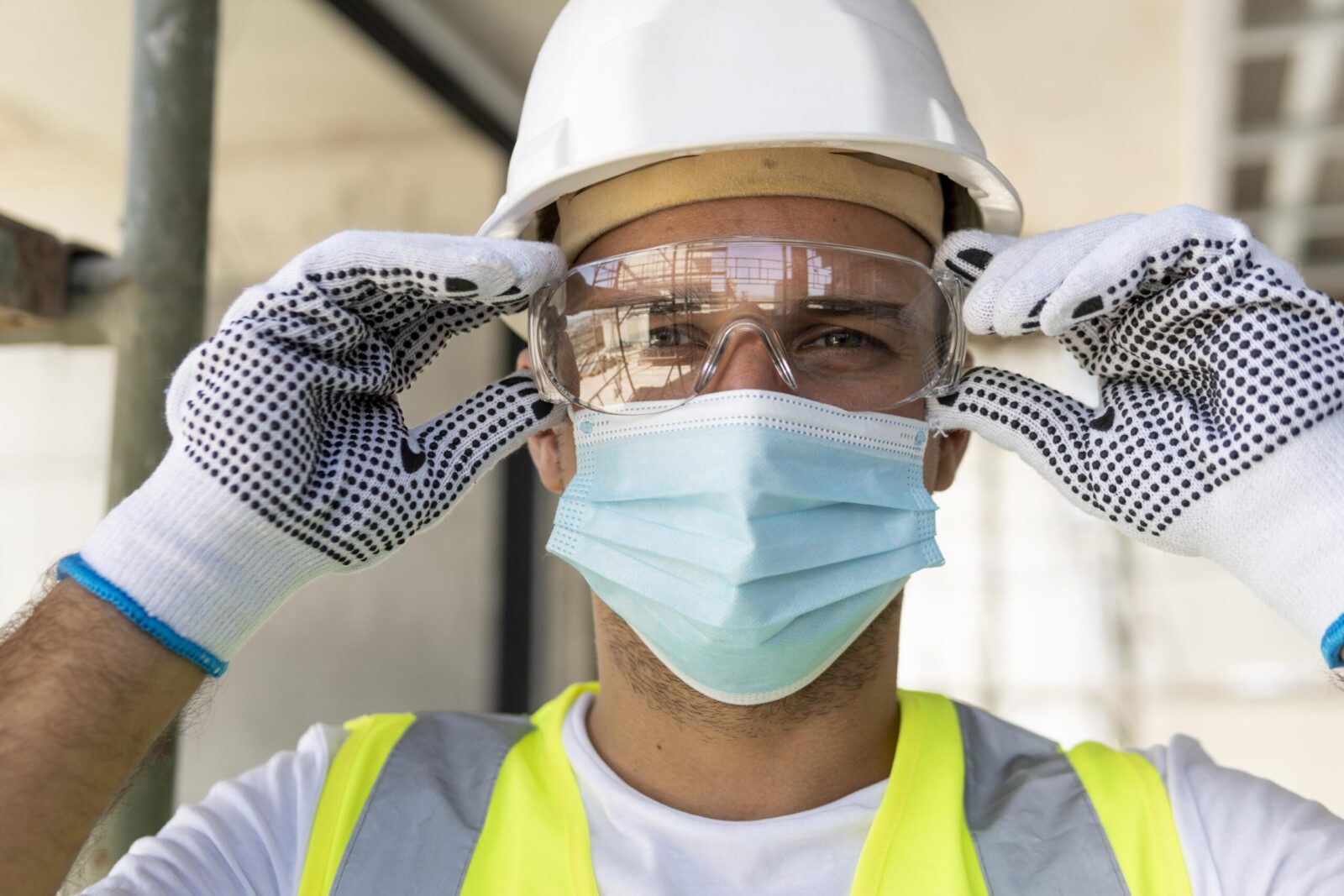
Essential PPE in the Food Industry: What You Need to Know
Overwhelmed by PPE options for food safety? Master your PPE selection for food workers safety with these practical tips.

Get 20€ off on your first order!
Face shields are essential for safety in industries like construction, manufacturing, automotive, and warehousing. But with many options available, it can be tricky to know which one is right for you.
This guide will walk you through the important factors to consider when selecting a face shield, from materials to features to industry-specific needs. By the end, you’ll feel confident choosing the best face shield for your work environment.
We’ve gathered expert recommendations from trusted suppliers like Juha Rantanen, Portwest, Bolle Safety, and Skydda to ensure you make an informed decision. We’ll also cover key features like comfort, fit, and certification.
Once you’ve chosen the right face shield, we’ll also help you with other safety equipment, like safety glasses or welding helmets, in our related buying guides.

Face shields come in various designs tailored for specific tasks. Selecting the right type depends on the specific conditions and level of protection required.
To make an informed purchase, consider these critical features:
Face shields are typically made from:
Learn about standard materials and structures in this Medtecs Face Shields Guide.
Verify that the face shield complies with European safety standards such as EN 166 for personal eye protection. Certified products meet rigorous testing for durability, impact resistance, and optical clarity. Look for markings indicating compliance and the level of protection offered.
Look for features like adjustable headbands, anti-fog coatings, and lightweight designs. A proper fit ensures prolonged wearability without discomfort. For healthcare workers, additional cushioning and breathability may be necessary.
| Type | Best For | Material | Key Features |
| Full-Face Protection | Comprehensive coverage | Polycarbonate | Anti-fog, wrap-around design |
| Flip-Up Shields | Intermittent protection | Acetate | Helmet compatibility |
| Disposable Shields | Short-term, lightweight tasks | PET | Cost-effective, easy disposal |
| Healthcare Shields | Protection against droplets | Acetate/PET | Lightweight, disposable |
Explore these European suppliers known for their high-quality face shields:
Visit their catalogs to explore a wide range of options tailored for your industry.
Face shields work best when paired with other personal protective equipment:
We hope this guide has been helpful in navigating the essential factors for choosing the right face shield, from material options to key features and industry applications. Whether you’re working in construction, automotive, or manufacturing, we’re here to support your safety needs.
Browse our Face Shields category or explore trusted suppliers like Juha Rantanen and Bolle Safety for top-quality options.
If you have any questions or need advice on selecting the perfect face shield, don’t hesitate to reach out—we’re always here to help ensure your safety and confidence in every purchase.
– The Droppe Team
No, a face shield should be used in combination with safety glasses for optimal protection.
Clean with mild soap and water; avoid abrasive cleaners that can scratch the surface.
Yes, many face shields feature adjustable headbands for a secure and comfortable fit.
Some face shields offer UV protection, but check product specifications for confirmation.
The lifespan of a face shield depends on usage and care, but they should be replaced if damaged or scratched.
Thank you! You've signed up for our newsletter.



















Overwhelmed by PPE options for food safety? Master your PPE selection for food workers safety with these practical tips.

Struggling to maintain clear vision in demanding environments? This guide is here to help. By the end, you’ll know exactly...

Electricians across Europe face unique challenges that require reliable safety glasses to ensure both protection and efficiency. Whether safeguarding against...

Overwhelmed by PPE options for food safety? Master your PPE selection for food workers safety with these practical tips.

Struggling to maintain clear vision in demanding environments? This guide is here to help. By the end, you’ll know exactly...

Electricians across Europe face unique challenges that require reliable safety glasses to ensure both protection and efficiency. Whether safeguarding against...
Get 10€ off on your first order!
Save 30% by buying directly from brands, and get an extra 10€ off orders over €100
Save 30% by buying directly form brands, and get an extra 10€ off orders over €100